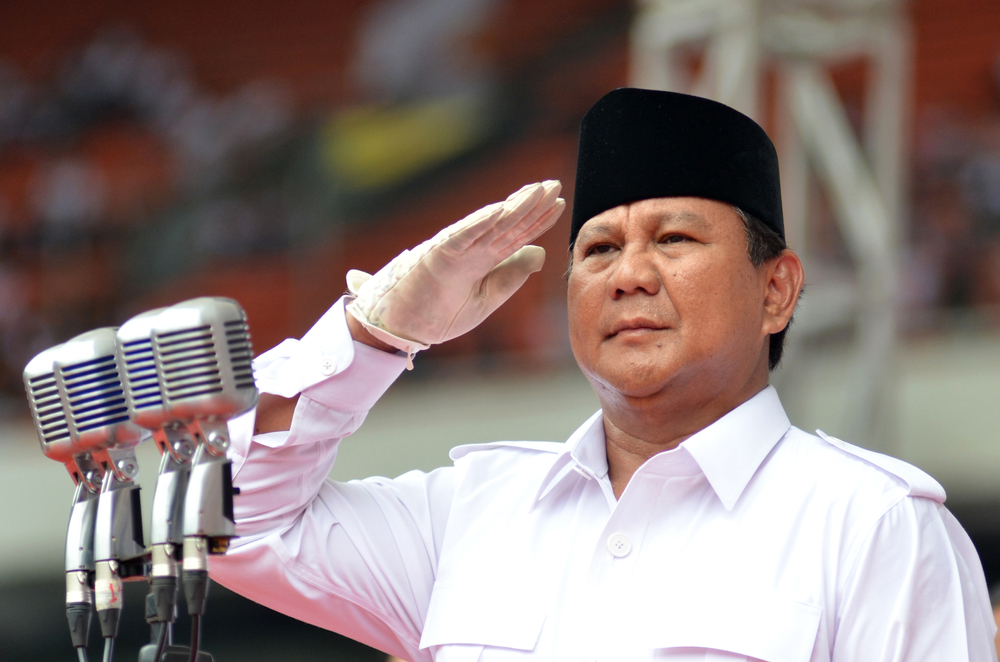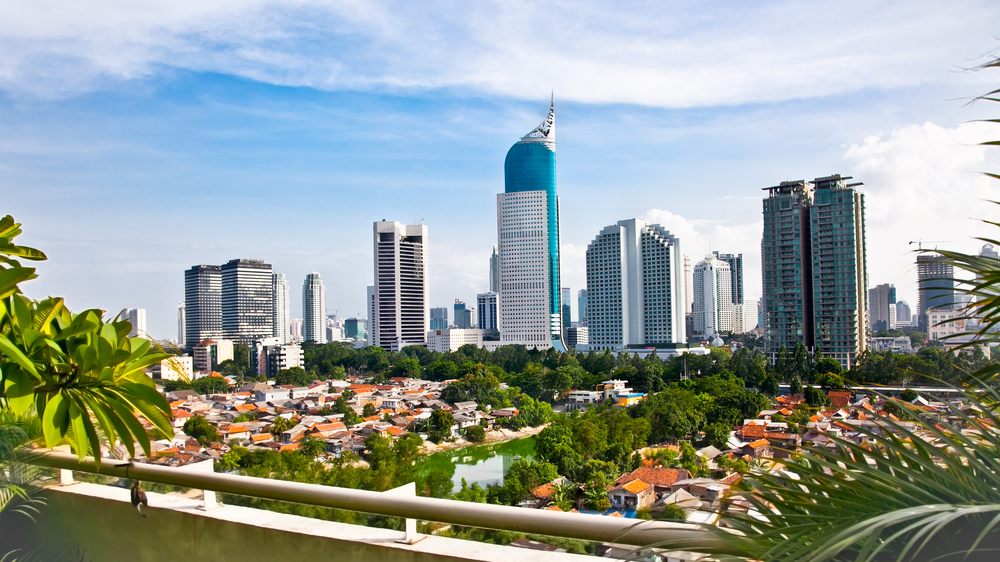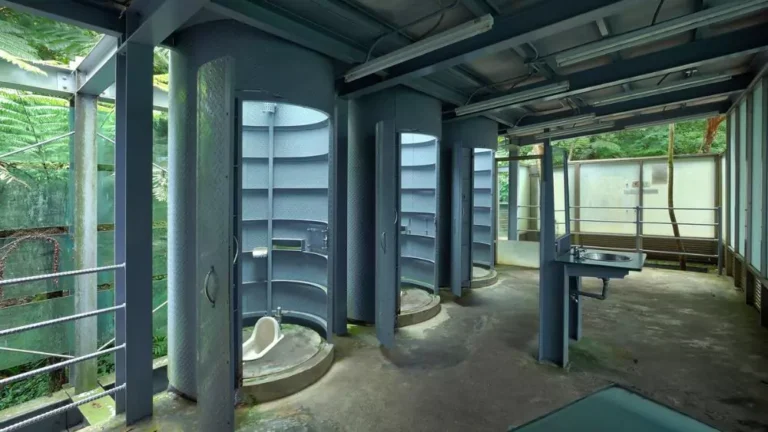Decoding Prabowo Subianto: Human rights history versus economic vision
Indonesian President-Elect Prabowo Subianto has a chequered record on human rights but is also the candidate most likely to build on recent low-inflation and infrastructure successes

In the early 2000s, Prabowo Subianto was living in self-imposed exile in Jordan. The former military general had been fired from the highest ranks of Indonesia’s army, accused of commanding a unit that had abducted and tortured 23 democracy activists following the 1997 Asian financial crisis. The US and Australia had both placed him on a travel blacklist for his record of human rights abuses.
Fast forward to the present and Prabowo is all but confirmed to be the next president of Indonesia. Following the nation’s general election in February, early counting suggests Prabowo has won over 55 percent of the vote. While the official tally is a laborious, weeks-long process, his two opponents, Anies Baswedan and Ganjar Pranowo, have already conceded defeat.
While critics are lamenting Prabowo’s early election victory as dismal news for democracy, the market has no such qualms. As it was announced on 14 February that Prabowo, son-in-law to General Suharto, the authoritarian military dictator, would likely become Indonesia’s next president, the stock market cheered.
The Jakarta Composite Index rose 1.3 percent, hitting a one-month peak, as analysts predicted continuity for President Joko “Jokowi” Widodo’s policies of massive infrastructure spending.
What this means for Indonesia’s real estate market will only become clear in the months to follow. Prabowo has pledged continuation with the economic policies of Jokowi’s administration. Jokowi defeated Prabowo in the 2014 and 2019 general elections before forming a coalition with his old adversary, who has served as his secretary of defence since 2019.
“Currently, investors may adopt a cautious, wait-and-see approach due to uncertainties surrounding policy direction and the transition of leadership,” says Hendra Hartono, CEO of Leads Property Services Indonesia. “Investor sentiment towards Indonesia is influenced by geopolitical dynamics, regional developments, and global economic conditions, including the prevailing sentiment of a looming recession that may impact capital inflows.”
Uncertainty at this stage stems from exactly what a Prabowo government might look like. Indonesia requires candidates to win at least 20 percent of the vote in at least half of the country’s 38 provinces to form a government. There will be many months of tough coalition negotiations before any new president gets sworn in during ceremonies slated for October.
Investors are awaiting clarity on who Prabowo might appoint as his finance minister. The current finance minister, Sri Mulyani, is unlikely to return. Prabowo has criticised her in the past for saddling Indonesians with greater average debt. Potential new candidates include Indonesia’s health minister, Budi Saidikin, and Suhasil Nazara, currently the deputy minister of finance.

During this period, Hartono believes that Indonesia’s real estate market will be more influenced by wider post-pandemic recovery trends—where growth has been steady in the hotel, serviced apartment, and mall sectors— than any announcements Prabowo might make.
“We do not anticipate any substantial impact on these industries because of Prabowo’s presidency. Instead, we anticipate that his administration will carry on with the previous administration’s initiatives, which will maintain stability and growth in the real estate market,” says Hartono.
Since the easing of lockdown, Indonesia has seen strong year-on-year economic growth of around five percent, according to the World Bank. The International Market Analysis Research and Consulting Group (IMARC) predicts Indonesia’s real estate market to sustain a growth rate of 5.5 percent in its forecast for 2024 to 2032.
During his two presidential terms, Jokowi has overseen a period of steady economic growth and low inflation. He has also green-lit infrastructure spending that has burdened state-owned companies with heavy debts. More uncertainty surrounds Prabowo’s fiscal prudence. His period as defence minister saw a 20 percent rise in defence spending for the 2024 period.
Such facts did not deter Indonesia’s burgeoning middle class from giving Prabowo their support. Under Jokowi, the gross domestic product per capita has risen for the first time above USD5,000. IMARC predicts that this group will drive Indonesia’s short-term real estate market, regardless of administration.
We anticipate that his administration will carry on with the previous administration’s initiatives, which will maintain stability and growth in the real estate market
“The burgeoning middle class with growing disposable income will facilitate the need for high-quality housing and premium commercial spaces, bolstering market growth,” it says.
Syarifah Syaukat, a senior research advisor at Knight Frank, predicts this group will move cautiously until Prabowo has set out his economic policies. “The real estate market can overcome economic challenges in an election year. Yet, for buyers, there are still some signs of caution, such as a rise in interest rates, tax, and slower economic growth,” he says.
The continuation of policies set out by Jokowi’s final administration would spell positive news for the plan to relocate Indonesia’s capital from sinking Jakarta to Nusantara on Borneo. Since Jokowi announced the project in 2019, land prices in and around Nusantara have increased 25-fold, according to the government in Sepaku district, East Kalimantan.
The government expects to complete the first phase of development this year. On 27 February, it announced plans to relocate 6,000 civil servants by July, following an investment of USD4.4 billion into office buildings, apartments, utilities, places of worship, and roads in Nusantara.
Despite rising land prices, analysts say that private developers have shown little appetite for the new capital. “Whilst we continue to promote the Nusantara project, we have not yet so far received any substantial or genuine demand from potential clients or investors,” says Hartono.
Syaukat warns that the project is likely to pose challenges for Jakarta’s real estate markets, where the relocation of civil officials will increase vacancies in government office buildings. “These will need to be repurposed in the upcoming year,” he says.
Another factor unlikely to change Indonesia’s real estate dynamics under Prabowo is the recent introduction of a golden visa scheme to entice foreign investors. Announced in September 2023, the scheme grants an extended resident permit of five to 10 years to individual foreigners who invest a minimum of USD350,000 in Indonesia.
The director general of immigration, Silmy Karim, announced that 270 golden visa applicants had been registered in the first quarter of 2024, to reach 1,000 by the end of 2024.
Like the stock market, real estate can be undeterred by human rights records. Syaukat cautioned not to overstate the importance of this election on land and property prices. “The real estate market is stable and will keep growing, regardless of the chosen president,” he says.
The original version of this article appeared in PropertyGuru Property Report Magazine Issue No. 183 on issuu and Magzter. Write to our editors at [email protected].
Recommended
Meet the architect transforming Asia’s retail spaces with nature-inspired designs
David Buffonge, the cofounder of Hong Kong-based Lead8, has strong opinions on how to improve built environments around Asia
ARES White Paper Volume 3: The era of adaptive reinvention
Pioneering sustainable and innovative practices in urban development
ARES White Paper Volume 2: Unravelling the power of data revolution in real estate
Insights on proptech, smart cities, and sustainable development
ARES Digital White Paper Volume 1: The fundamentals of responsible building
Green and climate heroes join forces to discuss how Asia Pacific can weather the current environmental crises and the looming effects of climate change






